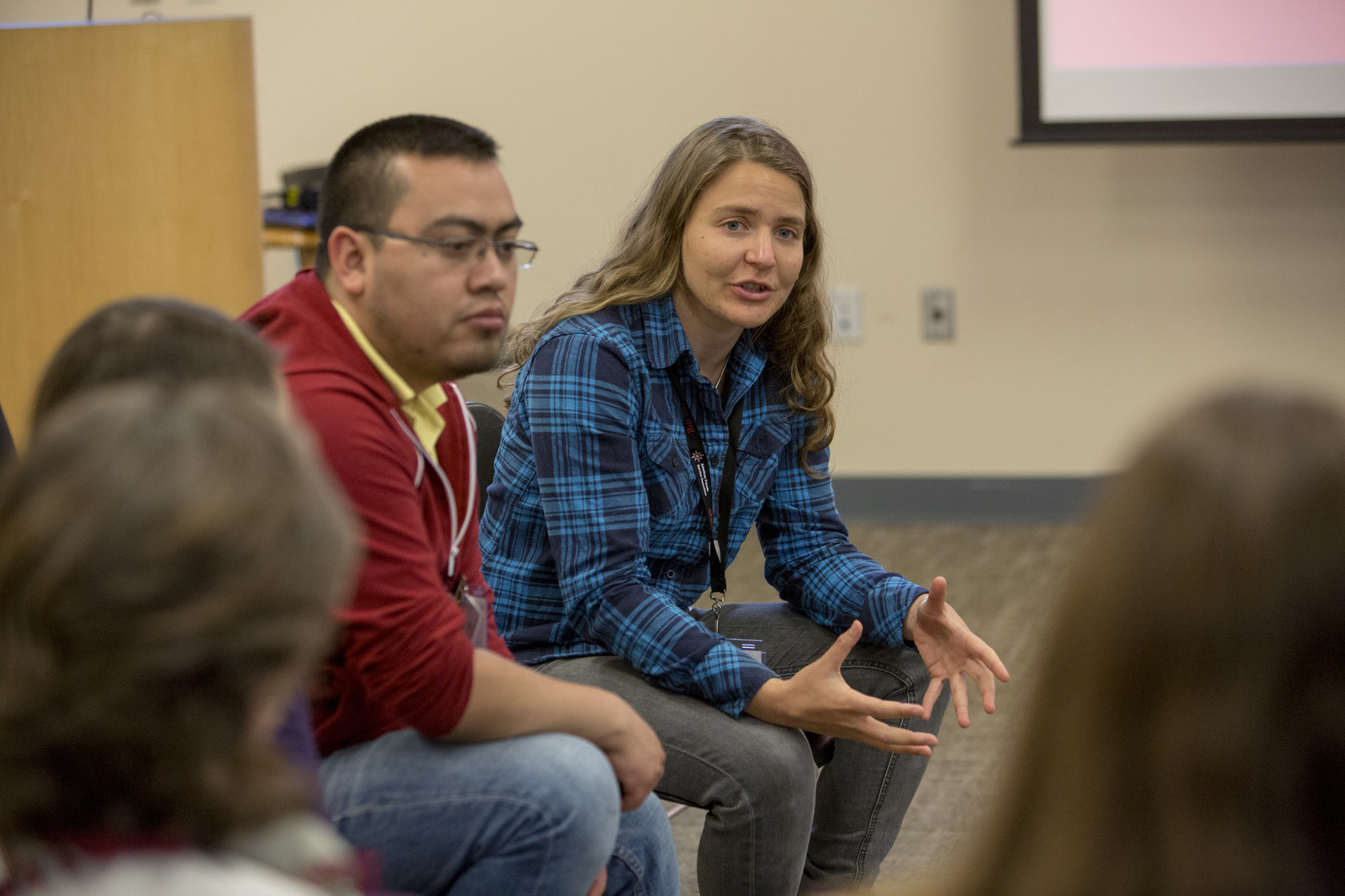
AFSC's Sahar Vardi (right). AFSC
Q: Could you give us an overview of what AFSC does in Israel? What are the goals of this work?
A: The Israel Program focuses on challenging militarization in Israeli society, which is one of the root causes behind the continuing occupation of Palestine. We work with local partners that counter the militarization of youth, including support for people who choose not to serve in the military. We also focus on Israel’s military industry and the economic aspects of militarism.
Q: AFSC has worked in Israel since 1948. Could you tell us a little about that history?
A: AFSC started its work in this area at the request of the Red Cross and the UN. We were asked to offer relief to Palestinians after the Nakba, when hundreds of thousands of Palestinians became refugees. We’ve had constant work in Israel and Palestine ever since.
Q: How has AFSC’s approach adapted as circumstances changed?
A: AFSC made the choice to stop the relief work with refugees because they saw that the international community, instead of fighting for the Palestinians’ right to return home, was normalizing their refugee status. AFSC’s work is now more political. Especially in the last couple decades, we have focused on following the lead of local communities.
Q: What led you to become involved with anti-militarization efforts and with AFSC?
A: My first involvement with anti-militarism was in my teenage years. Being exposed to militarism in school and to what that military was doing, the occupation of Palestinians, led me to start working within an anti-militarist framework. That included dealing with my own legal obligation to be drafted.
Q: What was that experience like?
A: The right to refuse military service doesn’t exist in Israel. People who refuse military service are tried as soldiers who are refusing an order and repeatedly sent to prison. The most difficult thing is not knowing how long it will continue. But Israeli refusers spend at most a few months in prison, while Palestinians and political prisoners can spend years.
Q: Can you share a story from AFSC’s work with conscientious objectors?
A: There’s a young man who was just imprisoned today for his third or fourth term. His family immigrated from Russia, and Russian immigrants are very much marginalized in Israel. During his term of military service, he visited Ukraine on a family vacation, and there he experienced anti-Semitism, which he connected with the racism he faced for being Russian in Israel. These experiences led him to think about his own role in executing racist policies as a soldier, and he decided to become a refuser.
Q: What are some other ways that militarism has impacted Israeli society?
A: One thing that’s very clear is how it affects gender dynamics. Militaries worldwide are extremely masculine systems. Sexual harassment and sexual violence are very common, and here we force our youth into that system. If all 18-year-olds go into a system where for two or three years, sexual harassment is normalized, they don’t forget that.
The Israeli military is also part of the tracking system that reinforces socioeconomic disparities within Israel, a lot like college in the U.S. People from higher socioeconomic backgrounds will enter elite units and will have that on their CVs for the rest of their lives.
Q: How has Israeli militarism impacted the rest of the world?
A: This is one of the main issues that we are working on today. Israel has no human rights restrictions on its arms exports. Any human rights violation that you can think about historically, there were probably Israeli arms involved.
Q: What has the Israel Program been doing in relation to this issue?
A: The public discourse on arms exports is almost nonexistent. Most Israelis would not be happy if they knew their country was selling arms to the Duterte regime in the Philippines. We’re working with civil society groups to make the information accessible. There’s a campaign for legislation that will place human rights restrictions on arms exports.
The other side of our work is talking to the affected communities. We organized a conference in Brazil with people from different communities in Latin America that are on the receiving end of Israel arms and training and who are pushing their own countries to stop buying arms from Israel.
Q: How can people in the U.S. connect more with these efforts?
A: The U.S. and Israeli military industries are deeply intertwined, from the military aid that the U.S. gives to Israel to the fact that Israel’s use of U.S. weapons in Palestine allows those weapons to be marketed as battle-proven. An Israeli company produces the surveillance technology that is used on the U.S.-Mexico border. Israeli police train police in the U.S., contributing to their militarization. I would recommend that Americans look for those connections in their own communities and start to mobilize from there.